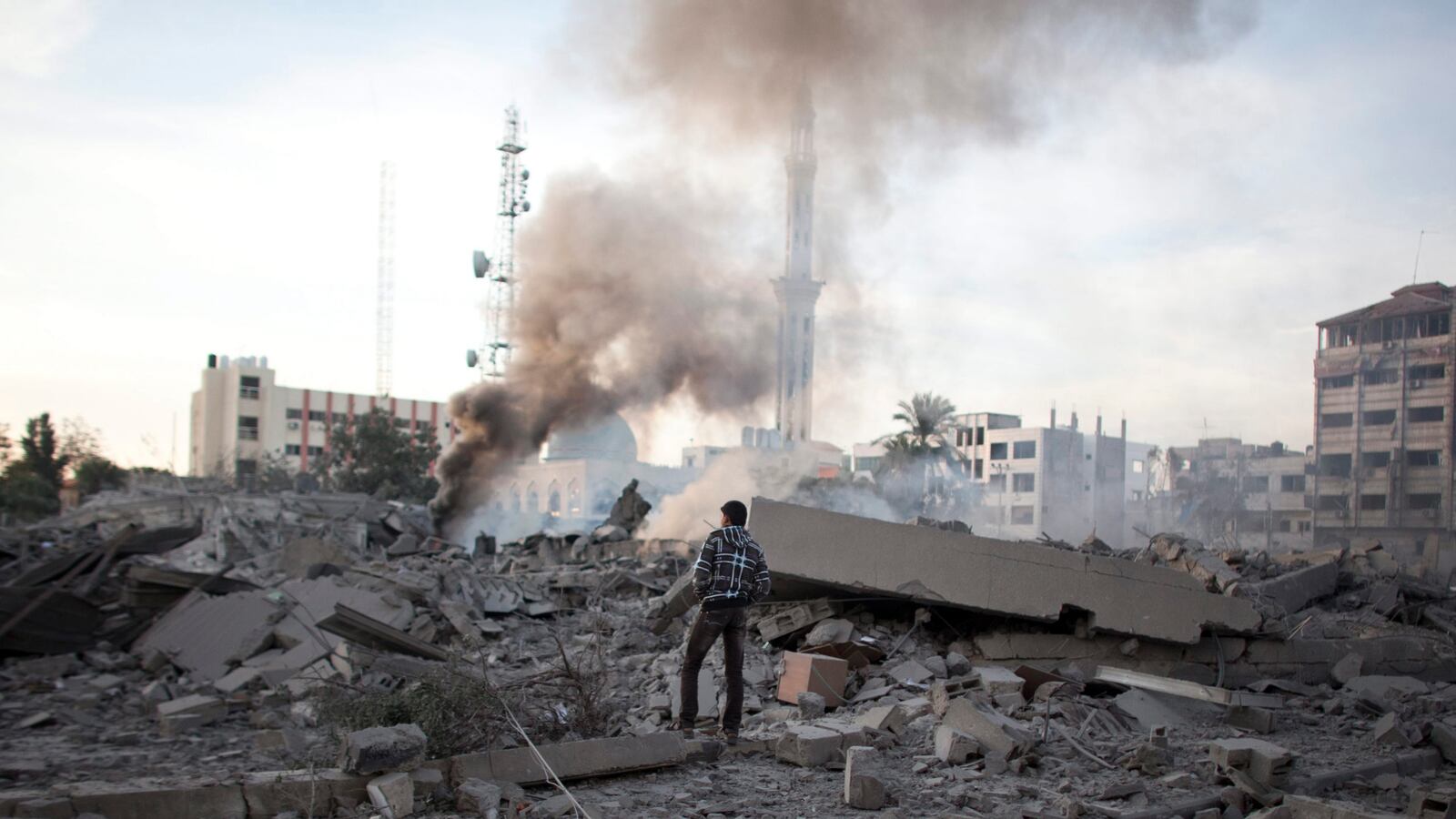
Hisham El Farra is 24 years old and in his final year at university where he studies social education. After graduation, though, he’d like to be a businessman, working with imports and exports. Travel is high on his wish list. One place he wants to visit is Spain, primarily to check out the women, he admits with an embarrassed youthful smile. “They are flawless,” he says.
But leaving his home in Gaza may not be possible. Since the Hamas takeover of Gaza in 2007, the territory has been under an Israeli-led blockade and, like Farra, an entire generation of Gazan youth has come of age without interaction with the outside world. The effect on their outlook on their own lives and that of the country around them is palpable.
Though he looks and acts like he could be at home lounging in any American college dorm, Farra has never been outside the besieged territory, and he is already doubting his own aspirations and ambitions. For one thing, he doesn’t know if he will be able fulfill the numerous requirements needed for Palestinians in Gaza to travel abroad. He also doubts he’ll be able to find a job. “The situation is very hard. I cannot dream anymore,” Farra says with a sigh, sitting in his friend Jamal El Manshawi’s apartment in the middle of Gaza City.
Manshawi is in a similar boat. He studied airport management at Gaza Community College, though the strip has no functioning airport. The irony, he assured The Daily Beast, wasn’t lost on him. The last time he traveled abroad was in 1996. He was 11. At 27, he is unemployed, with little hope of finding work.
Instead, Manshawi and Farra do the kinds of things most single young men do: they watch TV, they hang out with friends, and they crack jokes constantly. Though life has lately improved somewhat for the middle class in Gaza—there are now functioning coffee shops and small shopping malls—living in the strip is living in a different kind of prison, the kind that jails the mind.
More than 1.7 million people live in Gaza, an area slightly more than twice the size of Washington, D.C. Nearly 44 percent are under the age of 14. And while the literacy rate is high, 92 percent, the unemployment rate hovers around 30 percent of the population according to a May 2012 IMF report.
“It’s the country of hell. We have everything, but we are occupied,” Farra says. “It’s difficult. There are no words to describe it. We don’t exist on maps—on the world map.”
Though freedom of movement was loosened after Egypt opened its Rafah border crossing with Gaza last year and the Israeli restriction on consumer goods has eased slightly in recent years, hope for real change remains slim.“There are lots of differences between living as a human being outside to living here without spirit, without soul, just as a body,” Manshawi says. “You can do anything if you are outside Gaza. You can travel anytime if you want. You can go anywhere—to America, to Morocco, to Gaza—but because your nationality is Palestinian, it is different for you than other nationalities.”
In order to travel outside Gaza, residents must get a visa as well as approval from Hamas and Egypt to leave the territory. “I want to go anywhere, but I can’t,” says Manshawi, whose visa request to travel to Lebanon last year was rejected. “There are lots of pressures in the situation,” he says. “Economically, it’s bad. The more we think there will be progress, the more steps we take back.”
The two men blame both Israeli and Hamas for the deteriorating state of life in Gaza. Their families are Fatah supporters, the rival Palestinian faction that controls the West Bank, a place they are also barred from visiting.
Jeneen Yazouri, 20, is one of the luckier ones. She has traveled frequently to Egypt. “Life is not totally normal here, but we can survive. I can go out with my friends and hang out with them,” the plump university student says while playing with her long black hair.
Being outside Gaza is a totally different experience, she says. “In Egypt, I can actually be the real Jeneen,” she says. “In Gaza, I’m supposed to act a certain way to keep myself out of many problems. When you walk in the streets, it’s not normal. The Israeli bombings are part of the inner fear of every Gazan and Palestinian person. We are blockaded. People are just tired physically and psychologically.”
She says her friends and peers are angrier and more jumpy than the people she has met in Egypt. The blockade, the occupation and the conflict have weighed on their mental health.
Yazouri is against normalization of relations with Israel. She is a strong advocate of what she calls the armed resistance movement. She says she has no problem with Israeli citizens, but doesn’t acknowledge their government or state.
“Israel has to recognize and admit that Palestine is our land and not their land. Blood has to stop flowing, and then we can accept Israeli people as any human. I’m not against the humanity of Israelis, I’m against their acts,” she says.
The divide between the populations is present everywhere. Though she is active on social media, she does not interact with Israeli activists on Twitter, where she says she’s constantly trolled and abused by the Jewish state’s right-wingers. “Even on the Internet we don’t have a normal relationship with Israel,” she says.





